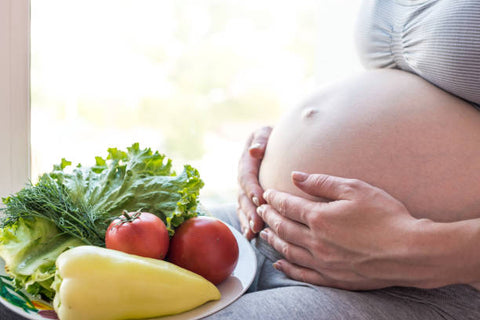Why nurtitions are required during pregnanacy?
Nutrition during pregnancy is essential for the health and development of the baby. It helps to ensure that the baby gets the vitamins, minerals and other nutrients necessary for healthy growth. Eating a variety of healthy foods during pregnancy can also help to reduce the risk of complications such as anemia, preeclampsia, and neural tube defects. Good nutrition can also help to reduce the risk of preterm labor, low birth weight and other complications. Eating a balanced diet during pregnancy can help to provide the baby with the nutrients necessary for healthy development and growth.
What diet should a pregnant woman take?
Pregnant women can get enough healthy fats in their diet by eating foods such as fatty fish, nuts, seeds, avocados, and olive oil. Omega-3 fatty acids are especially important for pregnant women, as they are essential for the development of the baby’s brain and nervous system. Sources of omega-3 fatty acids include fatty fish such as salmon, sardines, and mackerel, as well as chia seeds, flaxseeds, and walnuts.

Protein is important for the development of the baby’s muscles and organs. Calcium is important for the development of the baby’s bones and teeth. Iron is important for the development of the baby’s red blood cells. Folate is important for the development of the baby’s neural tube. Vitamin D is important for the development of the baby’s bones and teeth. Omega-3 fatty acids are essential for the development of the baby’s brain and nervous system.
The best diet during pregnancy is one that is balanced and includes :
- plenty of fruits
- vegetables
- proteins
- whole grains
It is also important to take a prenatal vitamin supplement to ensure all necessary nutrients are being consumed.Nutrition during pregnancy is very important for the health of both the mother and baby.
What should be avoided during pregnancy?
Pregnant women should limit their intake of sugar, caffeine, and processed foods, and should increase their intake of healthy fats and omega-3 fatty acids.
It is important to avoid certain foods and beverages during pregnancy as they could be harmful to the baby and mother. These include alcohol, raw or undercooked meats, unpasteurized dairy products, certain types of fish, soft cheeses such as brie and camembert, and raw eggs. Caffeine should also be limited, as it can lead to dehydration, insomnia, and other unwanted side effects. It is also important to avoid unpasteurized fruit juices, as these can contain harmful bacteria that can lead to foodborne illness.













1 comment
I was diagnosed with Herpes four years ago. For over two years, I relied on prescribed medications and treatments, but unfortunately, my condition continued to worsen. The flare-ups became more frequent, the discomfort increased, and even simple daily tasks became difficult to manage.Last year, out of desperation and hope, I decided to try a herbal treatment program from NaturePath Herbal Clinic. Honestly, I was skeptical at first, but within a few months of starting the program, I felt some changes. My discomfort eased, my energy levels improved, and I felt I had more control over my daily life again.It’s been a meaningful experience for me, and I feel more like myself than I have in years. This is simply my personal story. You can visit their website at www.naturepathherbalclinic.com
info@naturepathherbalclinic.com